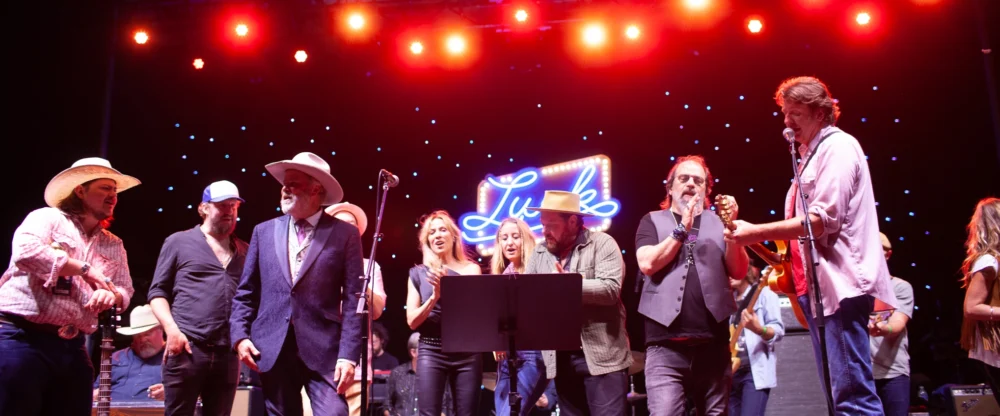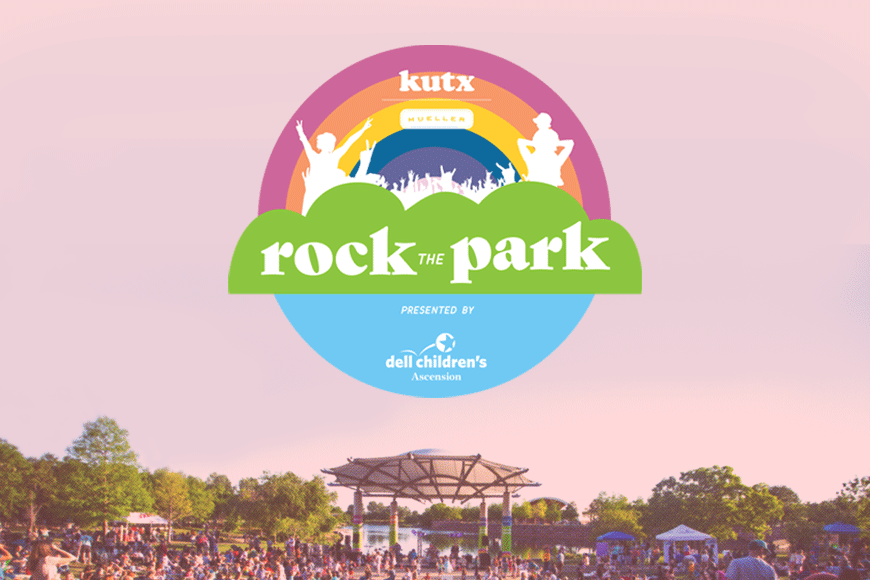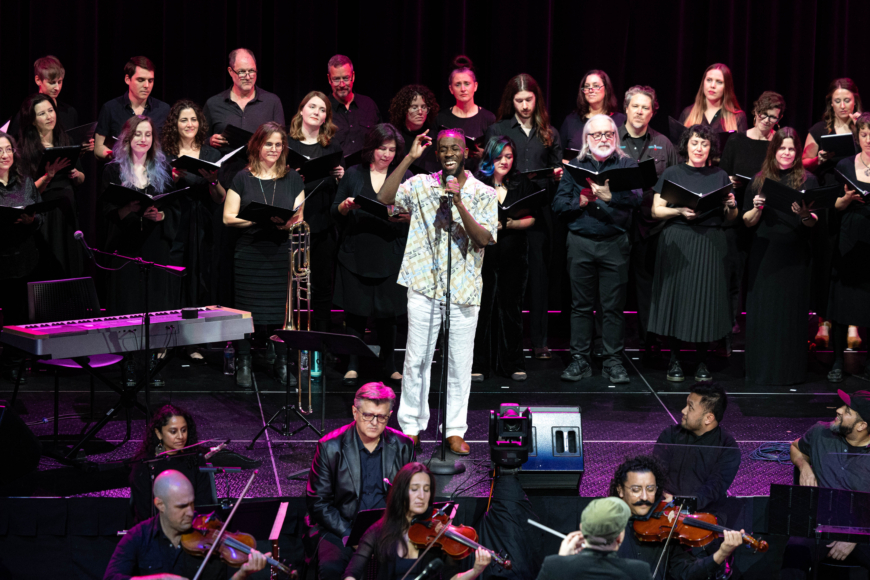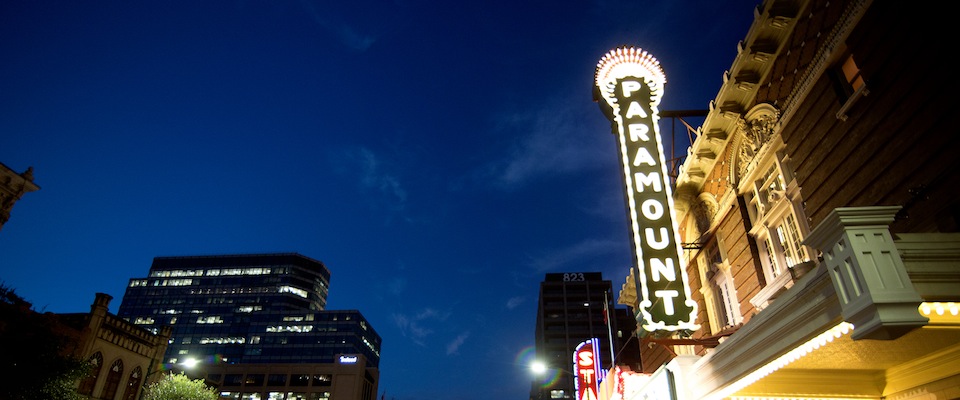Willie Nelson turns 90 on Saturday. Last year around this time, some of Willie’s friends and admirers got together to pay a musical tribute to the singer-songwriter and music legend, with a star-studded concert. That night of music has now become a new album, ‘One Night in Texas, The Next Waltzs’ tribute to The Redheaded Stranger.’
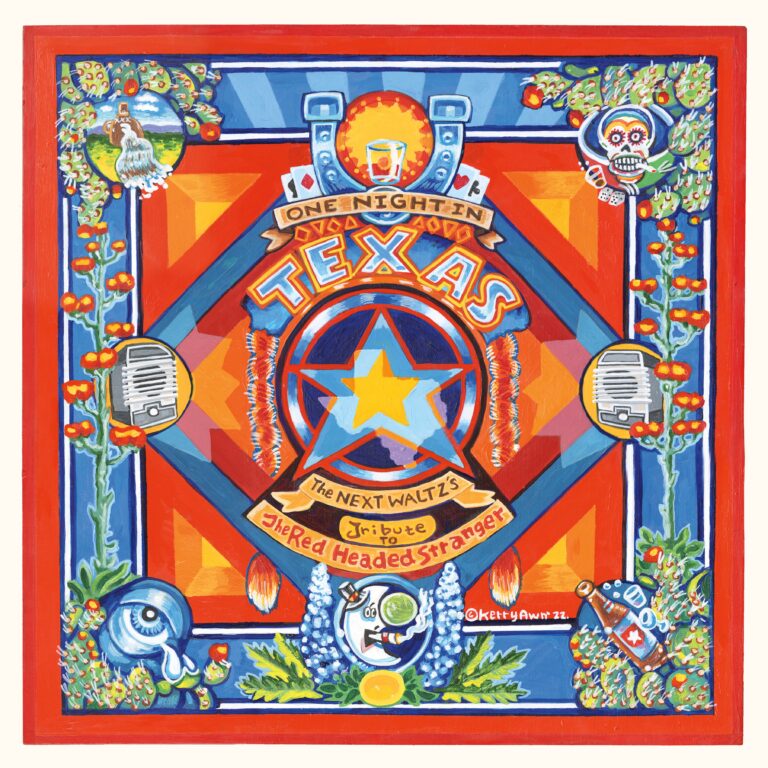
The album features Nelson songs played by Sheryl Crow, Steve Earle, Robert Earl Keen, Margo Price, Ray Wylie Hubbard and many more, and it was produced by musician and Last Waltz proprietor, Bruce Robison. The album came together when all the stars who appeared at the tribute concert agreed to contribute those performances. Robison told Texas Standard that the energy of the performances, and some of the less-than-perfect production values, give the album its unique spark. Listen to the interview above or read the transcript below.
This transcript has been edited lightly for clarity:
Texas Standard: When you say “Willie” here, just about everybody knows the first name. What is it about this man and his music that has made him such a legend? I mean, there are a lot of folks who do this style of music still. And yet Willie stands out.
Bruce Robison: Yeah, that’s a great question because when you look back at how influential he was and how, I would say revolutionary, he was and how he approached the music, either just from a fan or the people who aspire to make music, it just continues to get bigger and bigger. There’s really only a couple of names in that category – people that affected the culture so much.
And that he came from our neck of the woods and just rocked the world. It’s just such a wonderful thing that is hard to put parameters around. The music over the decades is about the only way that you can get close, because there really is nobody like him.
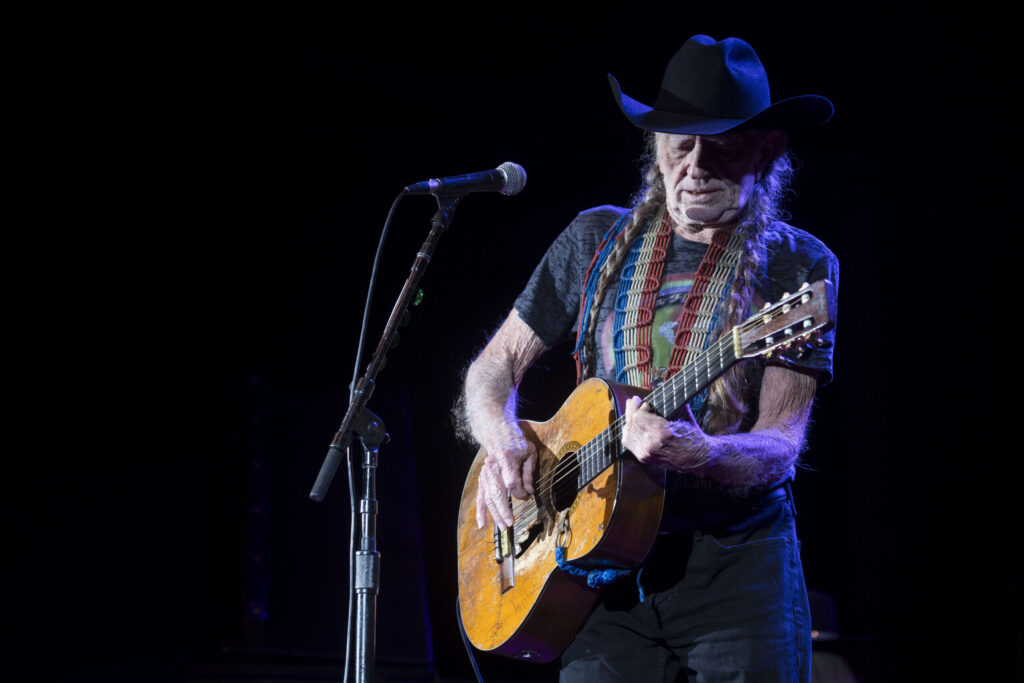
I remember Joe Nick Patoski, the writer/biographer, once saying that a lot of people overlook the fact that Willie is a tremendous musician – a guitar player. And he has this jazz feel, as well. But I dare say over the years that his iconic look has become such a part that they forget that this guy wrote some of the greatest songs in American music. I mean, “Crazy.” We could go on. Tell us a little bit about the songs on this new album.
Well, it means to be all over the place and to have Nathaniel Rateliff doing “Crazy” and then all the way up to somebody like Kevin Russell and Shinyribs doing “My Heroes Have Always Been Cowboys.” Which is, in my mind, kind of like a late 70s or early 80s kind of a country pop song.
I think of it like a movie actor. We don’t have stars like that anymore, where you would love any role that they played and you’d buy anything that they did. But it’s as if Gregory Peck wrote “Citizen Kane” or something like that. And you have this artist singing “Pancho and Lefty,” but he also wrote “Crazy.” Willie is the most influential artist for me. And so being asked to do this album was just really a dream come true.
I don’t reckon you had to twist too many arms to get these folks to participate.
The Luck people did all of that. They have an event space, and Willie does all the shows out there. I know those folks and have done shows with them and they called up and they said “let’s do this thing.” And I went out to dinner and told my friends, “This is great. I’m gonna do this for Willie’s 90th birthday.” And one of my friends is a writer who does the Texanist column in the Texas Monthly. And he said, “it’s not 90. It’s 89 this year.” And I was texting back with them and I was like, “Guys, I have it from a pretty good source that this is not 90.” And it was silence for like 8 minutes where I could see them just running around. And then they came back and said, “Let’s do it anyway.” And I was like, “Yeah, I’m in.” And then they got everybody to sign on. And then once everybody signed on, then Willie came and played. And it ended up being this just incredible, magical night that really was only just a little while after Bobbie died.
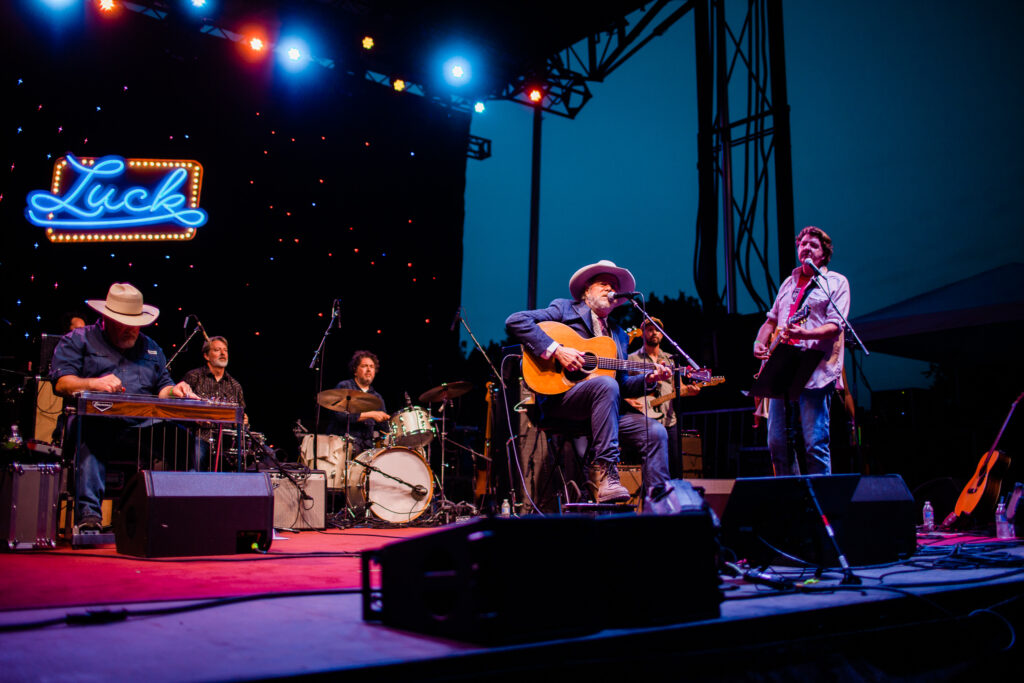
Talking about his sister, Bobbie Nelson, who played with him often.
And so the whole thing just had this magical feeling from beginning to end. Coming out of the lockdown and the first time that we it felt was when we started doing the rehearsals and everything was just magical. I’m so happy that there’s a record of it because it’s like it’s one of those things that you look back on in your life and usually there is no record of it. And I can’t believe it’s on tape.
Well, it’s wonderful that you were rolling tape. I mean, a lot of these magic moments don’t get caught this way. Was there always the intention to release it as an album?
I didn’t think there was any chance. As it got bigger and the names got bigger, and then I called one friend and said, “Hey, let’s record this thing.” And he said, “no way.” That it’s going to be too much work and it won’t work. And then I found another friend and he was like, “Yep, sure, I’ll do it.” And I said, “I really don’t have any money.” And he did it anyway.
And then the stars just kept getting bigger and bigger that signed on. I mean, it sounds to me like the 70s. It’s this big band, and it’s got bleed all over it and everybody’s just having a good time. There literally were like 10 people in the band. And I rented a grand piano even though we didn’t have the money for it. But I was like, for Sister Bobbie, we have to have a grand piano and for Emily Gimble. And the whole thing was just so magical. It made it an easy decision to capture it somehow, but only when we got it down, and we listened to it and we mixed it as much as we could.
And I just started sending it out to these folks and saying, “Man, this is magical. I think people should hear this.” But I never had a thought that the bigger folks would say yes. And every one of them said yes. Pretty much almost without hesitation. And so I never thought that that would happen, you know, that I could go to Sheryl Crow or Margo Price or Nathaniel Rateliff or any of these folks and say, “Hey, we want to put this out.” And they all said yes.
I hear Margo Price does a really good job channeling Dolly Parton on “Shotgun Willie.”
She’s amazing. And every one of them, their personalities really shine through. And Margo just comes out there and owns it. And you could hear this excitement on there. It’s like in between her, and Nathaniel, who could just quiet the whole place. Even though he can just levitate 10,000 people when he wants to, he went a different way with just a whisper. And Margo just brought it. And, again, it shows the breadth of this music. That is the reason we just listen to it all the time, you know. And the songs that I wrote, they wouldn’t exist without Willie Nelson.
Do you have any favorites on among these performances?
Oh, man. If you play “Blue Eyes Cryin’ in the Rain” and about halfway through, it’s so quiet. And then when the band kind of comes in, the tension and release is incredible. And then, man, Ray Wylie [Hubbard] does “Whiskey River” – it’s just crazy. There’s a moment, you know – it’s not my vocal – but there’s a song that I do from “Phases and Stages” and when we get to the solo, people in the know will pick it out, but Emily Gimble plays the solo that her grandpa, Johnny Gimble, played on the original record. And when I was on stage, I was just like, “I can’t believe this is happening.”
I just got chills when you told me that.
Listen to it. And then listen to the original melody that Johnny played in the 70s. She’s so self-effacing. It’s the way she plays. It’s just like second nature. And she doesn’t seem to be ruffled by anything. And it’s like, “Oh, yeah, that’s the way it goes. I can just do that.”
And then, all of your listeners who have seen Willie so many times, and saw Bobbie playing “Down Yonder.” And after she died and we were in rehearsals I said, “Emily, I feel like we have to play ‘Down Yonder.’” And it was so fun. And I think that’s the end of side one on the vinyl. And it was a magical night.
And then, man, with Sheryl [Crow], you feel like maybe she used to play blues songs back before she was a mega star. Anyway, cut me off. It’s too much!
I love it. One of the things about Willie is he’s so giving. I mean, of his time and his energy and everything. He can’t say no. Have you had a chance gauge his reaction to this outpouring of love and respect? Because he gets it from all quarters, but to get it from peers and people who have been inspired by a lifetime in the trenches making this music… Have you got a sense of what his take is on this?
I have to say no. It’s been over 20 years now. But I was at dinner with Willie one night, and then probably just a couple of days later, I was in Nashville and saw an artist from the good old days that just looked like the person had a thousand yard stare. It was so weird to see that. And it struck me so hard how present Willie is every time I’m around him. I’m not the kind of person who talks about energy and stuff, but how different he is and how giving and present he is. And I wrote this stupid song, “What would Willie Do?” specifically about that idea. Because when I was thinking about him, I was lucky enough to be around a lot of old time stars, and there’s nobody like him. And so what makes him like that? I mean, he’s the Buddha. It’s such a gift for all of us.
